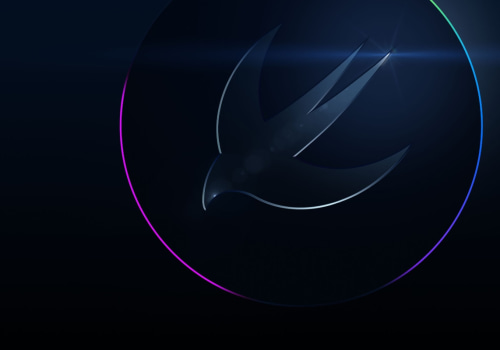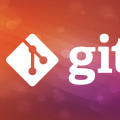Clojure and Haskell are increasingly popular, dynamic programming languages that offer an expressive and concise way to write functional code. By combining the power of Lisp with the flexibility of the Java Virtual Machine, Clojure and Haskell have become powerful tools for developing robust, scalable applications. Additionally, with the inclusion of ERLANG, Clojure and Haskell are powerful tools for writing distributed, concurrent applications. They both have a rich set of libraries and tools that make it easier to write robust, high-performance code. Clojure and Haskell are increasingly popular, dynamic programming languages that offer an expressive and concise way to write functional code. By combining the power of Lisp with the flexibility of the Java Virtual Machine, Clojure and Haskell have become powerful tools for developing robust, scalable applications. Additionally, with the inclusion of ERLANG, Clojure and Haskell are powerful tools for writing distributed, concurrent applications. They both have a rich set of libraries and tools that make it easier to write robust, high-performance code. are increasingly popular, dynamic programming languages that offer an expressive and concise way to write functional code. By combining the power of Lisp with the flexibility of the Java Virtual Machine, Clojure and Haskell have become powerful tools for developing robust, scalable applications. Additionally, with the inclusion of ERLANG, Clojure and Haskell are powerful tools for writing distributed, concurrent applications. They both have a rich set of libraries and tools that make it easier to write robust, high-performance code. Clojure and Haskell are increasingly popular, dynamic programming languages that offer an expressive and concise way to write functional code. By combining the power of Lisp with the flexibility of the Java Virtual Machine, Clojure and Haskell have become powerful tools for developing robust, scalable applications. Additionally, with the inclusion of ERLANG, Clojure and Haskell are powerful tools for writing distributed, concurrent applications. They both have a rich set of libraries and tools that make it easier to write robust, high-performance code. with the flexibility of the Java Virtual Machine, Clojure and Haskell have become powerful tools for developing robust, scalable applications. Additionally, with the inclusion of ERLANG, Clojure and Haskell are powerful tools for writing distributed, concurrent applications. They both have a rich set of libraries and tools that make it easier to write robust, high-performance code. Clojure and Haskell are increasingly popular, dynamic programming languages that offer an expressive and concise way to write functional code. By combining the power of Lisp with the flexibility of the Java Virtual Machine, Clojure and Haskell have become powerful tools for developing robust, scalable applications. Additionally, with the inclusion of ERLANG, Clojure and Haskell are powerful tools for writing distributed, concurrent applications. They both have a rich set of libraries and tools that make it easier to write robust, high-performance code. are increasingly popular, dynamic programming languages that offer an expressive and concise way to write functional code. By combining the power of Lisp with the flexibility of the Java Virtual Machine, Clojure and Haskell have become powerful tools for developing robust, scalable applications. Additionally, with the inclusion of ERLANG, Clojure and Haskell are powerful tools for writing distributed, concurrent applications. They both have a rich set of libraries and tools that make it easier to write robust, high-performance code. Clojure and Haskell are increasingly popular, dynamic programming languages that offer an expressive and concise way to write functional code. By combining the power of Lisp with the flexibility of the Java Virtual Machine, Clojure and Haskell have become powerful tools for developing robust, scalable applications. Additionally, with the inclusion of ERLANG, Clojure and Haskell are powerful tools for writing distributed, concurrent applications. They both have a rich set of libraries and tools that make it easier to write robust, high-performance code.
In addition, our company offers Content Ranked SEO services for education to help developers effectively showcase their Clojure and Haskell projects. In this comprehensive overview, we'll explore the different aspects of Clojure and why developers should consider using it for their projects. Clojure also provides a unique approach to data-driven development, allowing developers to quickly and easily build data-driven applications. We'll look at how Clojure can help developers rapidly prototype and refine their applications. Finally, we'll examine the different ways Clojure can be used in production, including cloud-based services, microservices, and large-scale enterprise applications. We'll discuss the advantages and disadvantages of each approach, and how developers can choose the best one for their needs. So join us as we explore Clojure and its many capabilities. In addition, our company offers Content Ranked SEO services for education to help developers effectively showcase their Clojure and Haskell projects. In this comprehensive overview, we'll explore the different aspects of Clojure and why developers should consider using it for their projects. Clojure also provides a unique approach to data-driven development, allowing developers to quickly and easily build data-driven applications. We'll look at how Clojure can help developers rapidly prototype and refine their applications. Finally, we'll examine the different ways Clojure can be used in production, including cloud-based services, microservices, and large-scale enterprise applications. We'll discuss the advantages and disadvantages of each approach, and how developers can choose the best one for their needs. So join us as we explore Clojure and its many capabilities.
We'll take a deep dive into its features and functions, as well as its potential for building high-performance applications.
Key Features of Clojure
Clojure is a modern functional language that provides an impressive array of features for building applications. The REPL (Read-Eval-Print Loop) is one of the most important features of Clojure, as it allows developers to quickly and easily evaluate expressions and test code in real-time. Macros are another key feature that makes Clojure unique, as they provide a powerful way of abstracting and manipulating code. Additionally, Clojure provides powerful data structure manipulation capabilities, which make it easier to work with complex data sets.Finally, Clojure also offers excellent support for concurrency, which makes it a great choice for developing distributed applications. All of these features make Clojure an incredibly powerful language for building applications.
Getting Started with Clojure
Clojure is a powerful and modern functional language that can be used for building applications, and it is relatively easy to get started with it. The first step is to install Clojure, which can be done by downloading the Clojure CLI tools or by using a package manager. Once Clojure is installed, developers can begin writing code and running it from the command line or from an integrated development environment (IDE).In addition to installation, developers will need to learn the syntax and basic language features of Clojure.There are several online tutorials and resources available that provide an introduction to the language, such as the official Clojure documentation. Additionally, there are many books and videos available to help developers learn the basics of Clojure. Developers may also wish to join the Clojure community and learn from other experienced users. The official Clojure website contains a list of helpful resources for getting started, including blogs, podcasts, and forums. There are also many user groups and conferences that provide an opportunity for developers to get connected and share their knowledge. Finally, there are many tools available for developing applications with Clojure, such as libraries and frameworks.
These tools can help developers get started quickly and make development more efficient.
What is Clojure?
Clojure is a modern, general-purpose, functional programming language that is designed to be dynamic, interactive, and simple. It is a dialect of Lisp, and runs on the Java Virtual Machine (JVM). It is a high-level language that allows developers to write code quickly and easily. Clojure is a popular choice for application development because it is easy to learn, and can be used to build robust and scalable applications. Clojure is different from many other programming languages because it uses immutable data structures, meaning that the values in a data structure are never changed, but instead, new data structures are created from old ones.This makes Clojure applications more reliable and efficient. Clojure also has a powerful macro system which allows developers to extend and modify the language in powerful ways. Furthermore, Clojure is designed for concurrency, meaning that multiple tasks can be running at once, making it ideal for building large scale applications. In summary, Clojure is an excellent choice for application development as it is simple to learn and use, yet powerful and reliable. Its immutable data structures and concurrency capabilities make it an ideal platform for building robust applications that can scale easily.
Popular Use Cases for Clojure
Clojure is a powerful functional programming language that has been used in a variety of projects and applications.One of its biggest advantages is its ability to easily integrate with existing Java-based applications, making it possible to reuse existing code. This makes Clojure an excellent choice for developing web applications and other software that needs to interact with existing Java applications. Clojure has also been used to build distributed data processing systems, such as Apache Spark and Apache Hadoop, due to its support for asynchronous programming and its ability to easily scale across multiple machines. Additionally, Clojure is used in machine learning libraries such as Core. ML, as well as for game development and other interactive applications. In terms of web development, Clojure is used for both back-end programming and front-end development, with frameworks such as Reagent, Om, and Quil making it easier to create interactive web applications.
It is also often used for creating RESTful APIs, due to its simple syntax and ability to rapidly develop web services. Finally, Clojure is a popular choice for data analysis due to its scalability, functional programming features, and its support for robust data structures.
History of Clojure
Clojure is a modern, dynamic, and functional programming language created by Rich Hickey in 2007. It was designed to be a general-purpose language, with an emphasis on supporting the development of concurrent applications. The core idea behind Clojure was to provide an easy-to-use language that could be used to tackle complex problems. Hickey was inspired by Lisp and wanted to create a modern version of Lisp that could be used for the development of real-world applications.Clojure was created with the help of a number of contributors, including Stuart Halloway, Alex Miller, and Erik Meijer. It quickly gained popularity due to its simple syntax, expressive features, and powerful tools. The first major milestone in the development of Clojure was the release of version 1.0 in 2009. This version featured support for concurrency, immutable data structures, and the core language itself. Since then, Clojure has gone through several major releases, including 1.2 in 2010, 1.3 in 2011, 1.4 in 2012, 1.5 in 2013, 1.6 in 2014, 1.7 in 2015, 1.8 in 2016, and 1.9 in 2017. Each new version has added new features and improved upon existing ones.
Clojure has become increasingly popular over the years, with a growing number of developers using it to build a wide variety of applications. It is now used in a variety of industries, including finance, healthcare, and education. Clojure is a powerful modern functional language that offers many advantages to developers when building applications. It is well-suited for concurrent and parallel programming, has a simple and efficient syntax, and provides access to the Java Virtual Machine (JVM) and the Java class library. Additionally, Clojure is easy to learn and has a vibrant community that supports its growth.
Clojure has been used to create a range of software, from web apps to data processing pipelines. Whether you're an experienced programmer or just starting out, Clojure is worth exploring. There are plenty of online resources and tutorials to help you get started. With its powerful features, Clojure can help you quickly and efficiently build powerful applications.











